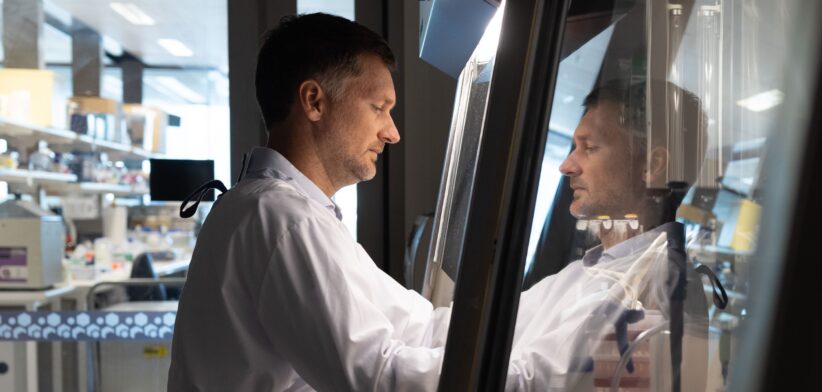Brisbane researchers have developed lab-grown heart tissues which behave like genuine adult heart tissue, improving the ability to test new drugs.
QIMR Berghofer Professor James Hudson said the breakthrough was bringing researchers closer to understanding and treating devastating heart disease, especially those affecting children.
Professor Hudson said through a collaboration between QIMR Berghofer’s Cardiac Bioengineering Lab and The Royal Children’s Hospital, lab-grown, three-dimensional heart tissues, called cardiac organoids, had been developed. (Watch the video explainer below)
“There’s huge benefit to studying heart diseases in this way. Using human cardiac organoids allows us to screen many more compounds, speeding up the process of drug development,” he said.
Professor Hudson said to create the tissues researchers used special cells called human pluripotent stem cells, which can turn into any cell in the body.
“However, when these stem cells become heart cells, they usually stay immature and more like the heart tissue found in a developing baby.
“This immaturity can limit their usefulness to model diseases that present in childhood or as an adult.”
He said, in the study, researchers activated two key biological pathways to mimic the effects of exercise and mature these cells, making them behave more like genuine adult heart tissue.
“The tiny hearts may be the size of a chia seed, but offer a platform to discover new treatments.”
Read the full study: Maturation of human cardiac organoids enables complex disease modeling and drug discovery.








